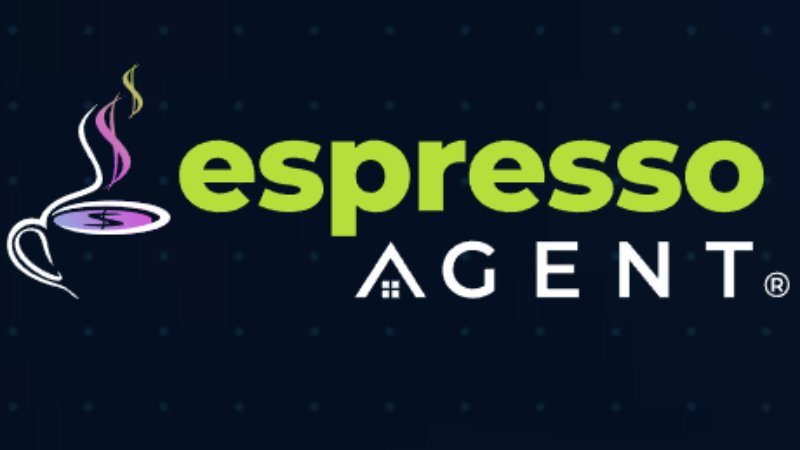
The real estate market is more competitive than ever, and relying solely on traditional networking and referrals won’t cut it anymore. The right real estate lead generation software can supercharge your ability to attract, nurture, and convert leads into loyal clients. But with so many options out there, how do you know which one is the best fit for your business?
In this guide, we’ll break down the must-have features that will help you streamline your workflow, boost efficiency, and ultimately grow your real estate business.
User-Friendly Interface & Customization
A tool’s effectiveness depends on how easy it is to use. If a platform is too complicated, you and your team might struggle to get the most out of it. The best software should have an intuitive dashboard that provides quick access to essential features without requiring extensive training. It should also offer customization options, allowing you to tailor the interface to match your specific workflow, whether you’re a solo agent or part of a larger brokerage. Additionally, drag-and-drop functionality can make it easy to build landing pages, automate workflows, and generate reports without needing technical expertise.
Multi-Channel Lead Capture & Qualification
Effective lead generation requires engaging with prospects on multiple platforms. A robust system should support website lead capture forms, including pop-ups, chatbots, and landing pages. It should also integrate seamlessly with social media platforms like Facebook, Instagram, and LinkedIn, making it easier to collect leads from ad campaigns and organic traffic. Furthermore, MLS and CRM integration ensures that all leads and property listings are synced in one place, reducing data entry errors and improving efficiency.
Not all leads are equally valuable, and spending time on unqualified prospects can be a waste of resources. That’s why your software should include AI-driven lead scoring to rank prospects based on their likelihood to convert. Automated segmentation is another essential feature, grouping leads by their behaviors, preferences, and past interactions. Predictive analytics can further help you identify high-intent leads, allowing you to prioritize outreach and improve conversion rates.
Automated Follow-Ups & Drip Campaigns
Consistent follow-ups are essential for converting leads, but manually tracking every contact can be overwhelming. A good lead generation tool should include automated email and SMS follow-ups to engage prospects at critical touchpoints. AI-powered chatbots can provide instant responses to inquiries, while pre-built and customizable drip campaigns help nurture leads over time without requiring constant manual effort.
Robust CRM & Contact Management
A real estate lead generation software solution should do more than just collect leads—it should help you manage relationships effectively. Look for a centralized database where you can store and organize lead details, communication history, and preferences. Pipeline tracking is also essential, giving you a visual representation of where each lead stands in the buying or selling process. Additionally, tagging and segmentation features allow you to send more targeted and relevant messages to different groups of leads.
Integration with Digital Advertising Platforms
Paid advertising is crucial to lead generation, so your software should integrate with digital ad platforms. Features like Google Ads and Facebook Ads integration allow you to launch and manage campaigns directly from your software. Dynamic retargeting can help re-engage visitors who have previously interacted with your website or listings, while ROI tracking provides insights into which campaigns are driving the most conversions.
Mobile Accessibility & Cloud-Based Functionality
Real estate professionals are always on the go, making mobile accessibility a must-have. Your software should offer a mobile app with full functionality, including lead tracking, messaging, and scheduling. Cloud-based access ensures that you and your team can retrieve and update information from any device, while cross-device synchronization keeps data consistent across desktops, tablets, and smartphones.
Predictive Analytics & Security
Data-driven decision-making can give you a competitive edge. Advanced real estate lead generation tools include market trend analysis to help you anticipate buyer and seller behaviors. AI-driven recommendations can suggest the best times and methods for reaching out to leads. Competitor analysis features allow you to benchmark your performance against other agents in your market, giving you insights into where you can improve.
Understanding what’s working and what’s not is essential for optimizing your strategies. Look for real-time conversion tracking that helps you adjust campaigns as needed. Customizable dashboards let you visualize key performance indicators at a glance, while A/B testing capabilities allow you to refine marketing campaigns based on data-driven insights.
Handling client data responsibly is critical. Your software should include robust security measures like data encryption to protect sensitive information. GDPR compliance ensures adherence to data privacy regulations, while role-based access controls help manage team permissions, ensuring that only authorized users can access specific information.
Seamless Communication & Scheduling
A top-tier lead generation tool should make communication effortless. Features like integrated calling, texting, and email allow you to interact with leads without switching between multiple platforms. Automated appointment scheduling minimizes back-and-forth coordination, while video call support enables virtual consultations with buyers and sellers, making the process more convenient for everyone involved.
Conclusion
Choosing the right real estate lead generation software can be the difference between a thriving business and one that struggles to keep up with the competition. Prioritizing features like automation, AI-driven insights, seamless integrations, and mobile accessibility will help you work smarter, not harder. As technology continues to evolve, staying ahead with the best tools will position you for long-term success in the real estate industry.